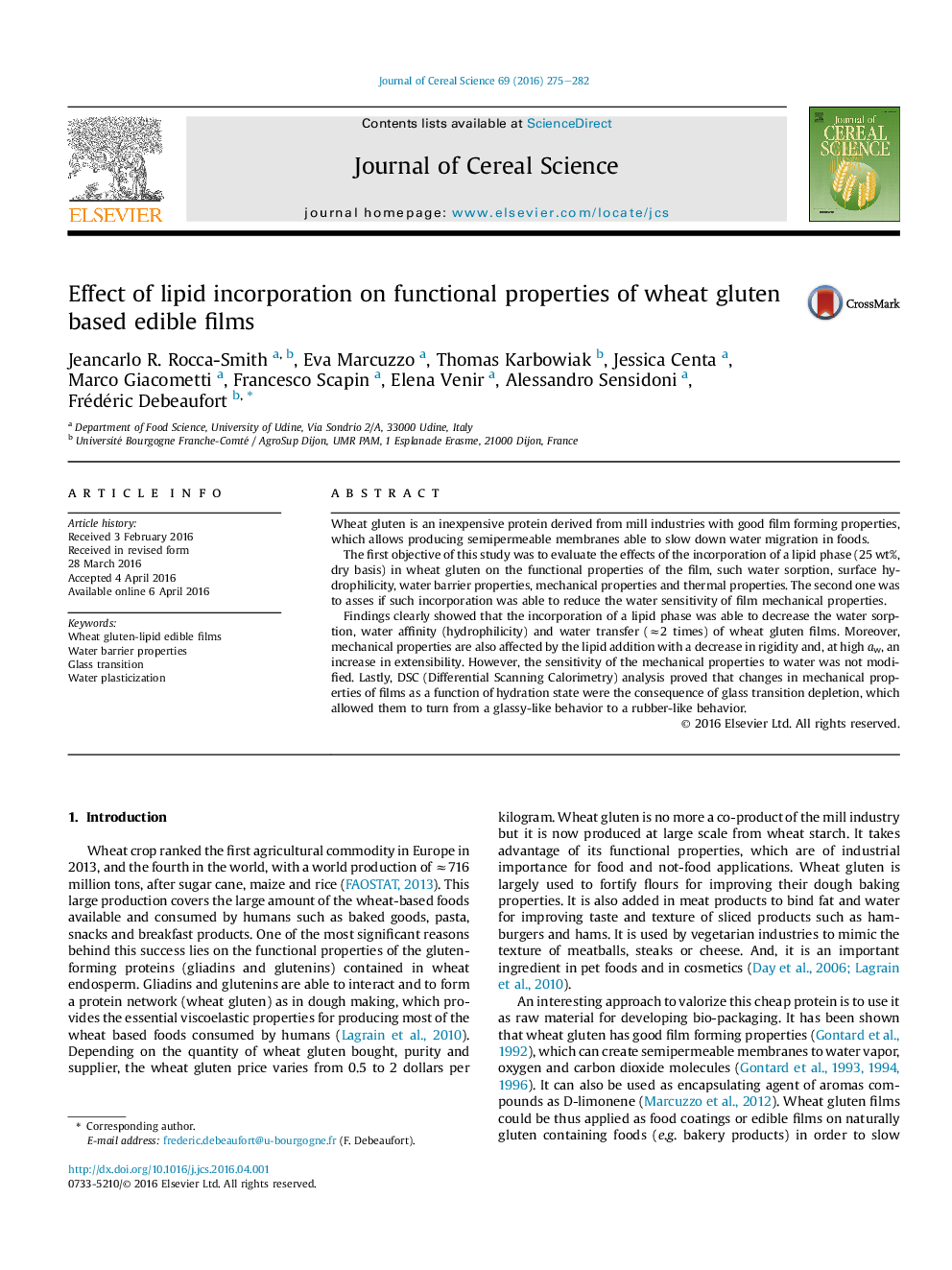| Article ID | Journal | Published Year | Pages | File Type |
|---|---|---|---|---|
| 4515594 | Journal of Cereal Science | 2016 | 8 Pages |
•Water transfer is twice reduced when lipids are emulsified in wheat gluten films.•Lipid incorporation decrease the cohesion of the polymer network.•Mechanical properties are strongly affected by water at aw > 0.4•Physical changes were related to Tg depletion due to water plasticization.
Wheat gluten is an inexpensive protein derived from mill industries with good film forming properties, which allows producing semipermeable membranes able to slow down water migration in foods.The first objective of this study was to evaluate the effects of the incorporation of a lipid phase (25 wt%, dry basis) in wheat gluten on the functional properties of the film, such water sorption, surface hydrophilicity, water barrier properties, mechanical properties and thermal properties. The second one was to asses if such incorporation was able to reduce the water sensitivity of film mechanical properties.Findings clearly showed that the incorporation of a lipid phase was able to decrease the water sorption, water affinity (hydrophilicity) and water transfer (≈2 times) of wheat gluten films. Moreover, mechanical properties are also affected by the lipid addition with a decrease in rigidity and, at high aw, an increase in extensibility. However, the sensitivity of the mechanical properties to water was not modified. Lastly, DSC (Differential Scanning Calorimetry) analysis proved that changes in mechanical properties of films as a function of hydration state were the consequence of glass transition depletion, which allowed them to turn from a glassy-like behavior to a rubber-like behavior.
